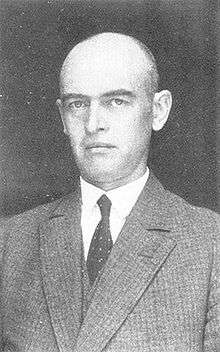Gotthelf Bergsträsser

Gotthelf Bergsträsser (April 5, 1886, Oberlosa, Plauen – August 16, 1933, near Berchtesgaden) was a German linguist specializing in Semitic studies, usually considered to be one of the greatest of the twentieth century. Bergsträsser was first a teacher of Classical languages and then decided to learn the Semitic languages.
He was a professor at the University of Constantinople during World War I, when he was an officer in the German army stationed in Turkey. When he was there, he studied the spoken dialects of Arabic and Aramaic in Syria and Palestine. One of his most well known works is the 29th (and final) edition of Wilhelm Gesenius' Hebrew Grammar (1918–1929), which remained incomplete, containing only phonology and morphology of the verb. Also widely admired was his Introduction to the Semitic Languages (1928, English translation 1983). These brought him international fame as a scholar. His last position was professor of the Semitic languages at the University of Munich.
Bergsträsser mostly engaged in the study of Arabic, focusing on the history of the text of the Qur'an. Bergsträsser left many of his planned works unfinished (including the rest of his Hebrew grammar and his grammar of spoken Aramaic), when he disappeared while mountaineering in 1933. Bergsträsser was an outspoken anti-Nazi, and helped to save German Jewish scholars.
Bibliography
- Die Negationen im Kur'an (1911)
- Hunain ibn Ishaq und seine Schule. Sprach- und literaturgeschichtliche Untersuchungen zu den arabischen Hippokrates- und Galen-Übersetzungen (1913)
- Verneinungs- und Fragepartikeln und Verwandtes im Kur'an (Leipzig, 1914; 1968)
- Sprachatlas von Syrien und Palästina (1915)
- Märchen und andere Texte aus Malula in deutscher Übersetzung (1915)
- Neue meteorologische Fragmente des Theophrast. Arabisch und deutsch (1918/19)
- Zum arabischen Dialekt von Damaskus. Phonetik und Prosatexte (1924)
- Hunain ibn Ishaq. Uber der syrischen und arabischen Galen-Übersetzungen (1925). Contains Arabic text and German translation
- Einführung in die semitischen Sprachen. Sprachproben und Grammatische Skizzen (1928; 1963 ISBN 3-19-005024-4)
- Plan eines Apparatus Criticus zum Koran (München, 1930)
- Die Geschichte des Korantexts with O. Pretzl in Theodor Nöldeke, Geschichte des Qorans (Leipzig 1938; 1961)
- Nichtkanonische Koranlesarten im Muhtasab des ibn Ginni (München, 1933)
- Phonogramme im neuaramäischen Dialekt von Malula (1933)
- Grundzüge des islamischen Rechts (edited and published by Joseph Schacht, 1935)